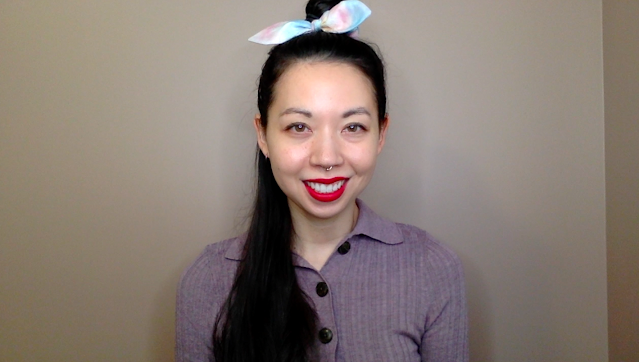VIDEO: Why Not Why
I really don't like 'why' questions at work and some experts agree!
We all have our particular quirks and workplace hangups. One of mine is that I don’t like 'why' questions. Interestingly, I have found over the course of the pandemic that I’ve been getting a lot more 'why' questions, and so for this video I want to offer a couple of perspectives.
First, I want to be clear that when I was being trained in Production, it was many years ago and a different world. When I was learning about Production, the common, if old-school way for me to learn to do something was to do so without knowing the ‘why’ behind it. I just did something because I was told to do it that particular way, no questions asked.
I admit, I have inherited this old-school attitude, and my current attitude (which is perhaps a bad one) is that sometimes, we aren’t entitled to an answer. It’s our job and duty in Production to carry something out with minimal questions.
Not everything is going to have a satisfying answer or make you passionate about your job. For me, the understanding and connections came with time and observation.
Alexandra Carter, a professor of law and author of Ask For More: 10 Questions to Negotiate Anything says
Why looks backward, often seeking to particularize a problem to a perpetrator. But the even bigger problem with why is that it’s a distancer. When we feel we understand why someone did something, we can blame that why and understand how we are separate from it.
- from Ask For More: 10 Questions to Negotiate Anything by Alexandra Carter
Something I want to make clear is that while I don’t like Why questions, I am always keen to improve things. So when it comes to something like, “why do we do things this way?” —it’s not that I’m against changing and improving workflows, quite the opposite - I want to move quickly past the why and onto the How or What, i.e.
- How can we improve things?
- What can we do to make this process more efficient?
- What if we tried this instead?
Tasha Eurich, author of Insight: The Surprising Truth About How Others See Us, How We See Ourselves, and Why The Answers Matter More Than We Think says
Why questions draw us to our limitations; what questions help us see our potential. Why questions stir up negative emotions; what questions keep us curious. Why questions wrap us in our past; what questions help us create a better future.
- from Insight by Tasha Eurich
The other thing about Why questions that I wanted to observe for this video is the pandemic. I think the pandemic, whether or not we work from home, or in animation at all, has had an effect where all of us want to see our values more connected to our work.
Given all the challenges and changes in the workplace and labor market generally, people are being a lot more choosy - if there is any part of our work that impacts our safety, well being, or takes away from our families or personal lives (which of course, work often does impact all these things), people want to know why its worth it.
“Why are we doing things a certain way” could easily translate to, “is this the most efficient and effective way to do X task”. Think about it - if it means 20 minutes of a work process that adds to your stress, or takes away time spent with my loved ones, questions about efficacy are bound to come up.
Kim Scott builds on this particular use of Why questions in her book Radical Candor: How to Be A Kick-ass Boss Without Losing Your Humanity specifically in the context of employee growth management. Scott says,
To be successful at growth management, you need to find out what motivates each person on your team […] Only when you get to know your direct reports well enough to know why they care about their work, what they hope to get out of their careers, and where they are in the present moment in time can you put the right people in the right roles and assign the right projects to the right people.
- from Radical Candor by Kim Scott, emphasis mine
I’ll leave you with an exercise from Tasha Eurich she calls What Not Why:
Let’s say you’re in a terrible mood after work one day. We already know that asking Why do I feel this way? Should come with a warning label […] What if you instead asked What am I feeling right now? […] Asking what instead of why forces us to name our emotions, a process that a strong body of research has shown to be effective […] If this sounds too simple to be true, try naming your feelings for a week and see what you notice.
- from Insight by Tasha Eurich
Read this next
- Insight: The Surprising Truth About How Others See Us, How We See Ourselves, and Why The Answers Matter More Than We Think by Tasha Eurich
- Ask For More: 10 Questions to Negotiate Anything by Alexandra Carter
- Radical Candor: How to Be A Kick-ass Boss Without Losing Your Humanity by Kim Scott
- VIDEO: Daily Habits for Improving Self-Awareness and Conversations
- VIDEO: The Worst Interview Question
- This video is part of my ongoing series, A Course in Production


